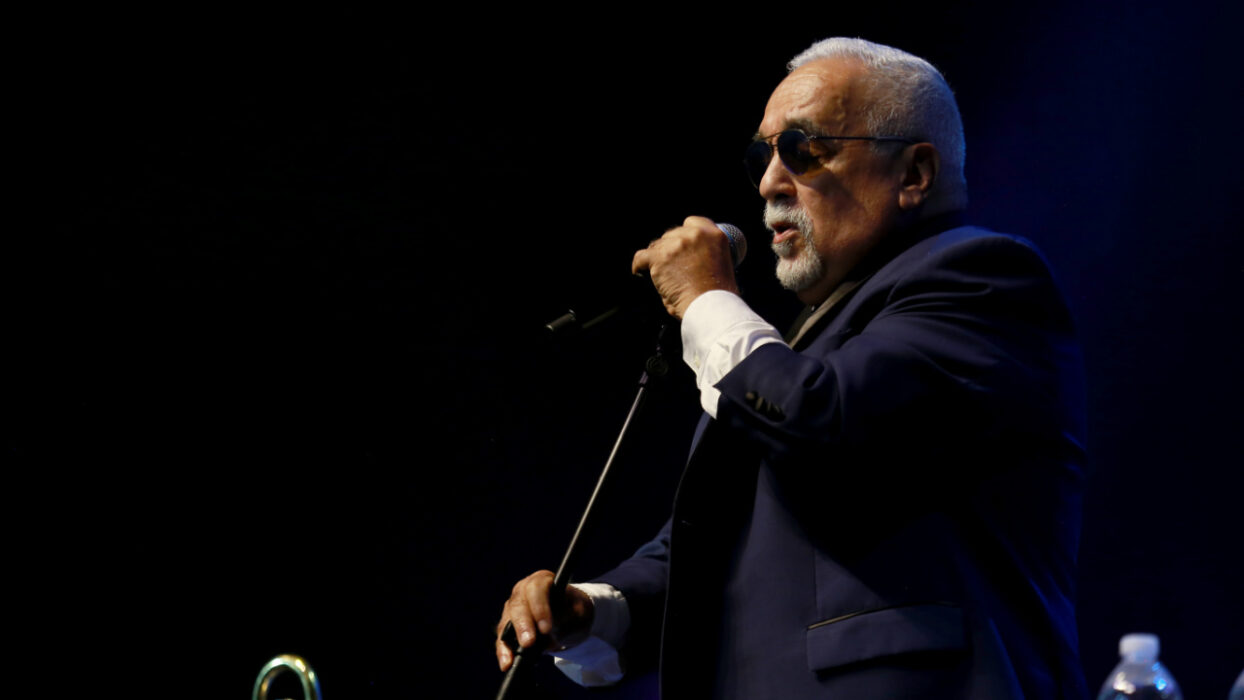
These LGBTQ+ Artists Are Transforming the Regional Mexican Music Scene
As regional Mexican music emerges as a global potential, the influence of LGBTQ+ artists also grows stronger.
Their music, inspired by pioneers like the iconic Chavela Vargas, resonates with millions. This genre breaks down barriers and paves the way for a more inclusive tomorrow.
LGBTQ+ exponents of regional Mexican music include Jhonny Caz from Grupo Firme, Erika Vidrio, Maria Veras Alvarez, Carlos Samaniego, Mariachi Arcoiris, and Raymix. These artists’ stories and music are shaping the industry and revolutionizing social norms.
The powerful voices of regional Mexican music
To talk about regional Mexican music is to talk about Grupo Firme. The band just sold out Sofi Stadium in Los Angeles. Similarly, the group set a record in 2022 by gathering 300,000 people at a free concert in Mexico City’s main square, El Zócalo.
Likewise, Jhonny Caz, Firme’s third vocalist, was crowned “king” of Mexico City Gay Pride 2022. With the support of his musician brothers, he has fearlessly defied stereotypes and transformed perceptions. His captivating performances and poignant lyrics are only part of the equation.
Caz has dared to bring the rainbow flag to the regional Mexican music scene, sparking a wave of acceptance in an industry once associated with machismo and homophobia.
His concerts have become a beacon of inclusivity, with one memorable instance being when he accepted his boyfriend’s marriage proposal on stage. This heartfelt moment sent a powerful message of love and acceptance, reinforcing the idea that love knows no boundaries.
Queer girl power
Erika Vidrio is another phenomenal talent making waves in Mexican music. However, the most successful female composer in regional Mexican music has encountered her share of obstacles.
During an interview with mitú, Vidrio recalled signing her songs with a man’s name when she first started dabbling in the genre.
“The same people who rejected [the songs] without even listening to them paid top dollar when they thought the songs were composed by a man,” she said.
Today, Vidrio is openly lesbian, married, and a mother of two. Best of all, she signs her songs with her real name.
Her songs feature the voices of big names in Mexican music, such as Christian Nodal, Conjunto Primavera, El Chapo de Sinaloa, Chuy Lizarraga, Banda MS, Los Rieleros del Norte, Hermanos Vega, Los Horóscopos de Durango, Alacranes Musical, Graciela Beltrán, Germán Montero and many more.
More multicolored talent
Another artist who paints regional Mexican music with colors is Raymix. This innovative artist is known for his fusion of traditional Mexican sounds and electronic rhythms. Raymix is also known for being the leading representative of the techno-cumbia subgenre.
And his story is inspiring.
Raymix was an engineer at NASA before choosing his passion for music as his new career path. His professional transition coincided with his personal acceptance and embracing of his identity.
When Raymix publicly came out during the pandemic, his heartfelt social media post marked a personal milestone. It became an important gesture of acceptance of the LGBTQ+ community in the Mexican music industry.
Similarly, artists such as María Veras Álvarez and Carlos Samaniego are making waves.
Alvarez, a singer, rapper, and workshop artist, brings a unique feminist perspective to her lyrics and combines genres such as rap, blues, soul, and cumbia.
Meanwhile, Samaniego made history by founding Mariachi Arcoíris, the first traditional Mexican music group composed of LGBTQ+ artists.
Finally, Juan Manuel Torreblanca is one of the best-known gay Mexican singers. In an interview with “Homosensual,” the singer of “Roma” assured that he was never in the closet. For a long time, the artist simply did not feel the need to touch the subject of sexual diversity in his music.
However, in 2019 he wondered if his reticence might not have to do with a kind of internalized homophobia. To “settle the debt,” that year, he released “Maricón,” an anthem to diversity that he even performed in Mexico City’s Zócalo during the LGBTQ+ Pride March.
LGBTQ+ stories in regional Mexican music
Today, songs like “Suele Pasar” by Banda Renovación, “La Vida de Un Gay” by Los Acosta, “Préstamela a Mí” by Calibre 50, and “Era Diferente” by Los Tigres del Norte are revolutionizing the regional Mexican music scene.
These songs explore themes such as discrimination, censorship, and fear, contributing to the genre’s evolution and broadening its audience.
The collective impact of these artists is palpable, and their influence filters far beyond the confines of the stage. As the world celebrates Pride Month, these artists are not just creating music but weaving a narrative of change.
Like that of Chavela Vargas and Juan Gabriel, their journey serves as a reminder of the transformative potential of music.




